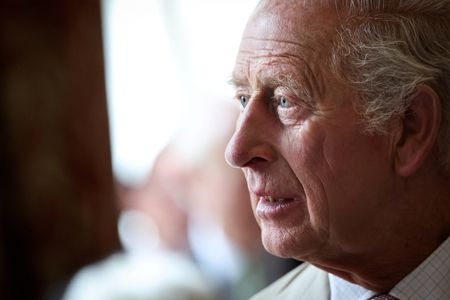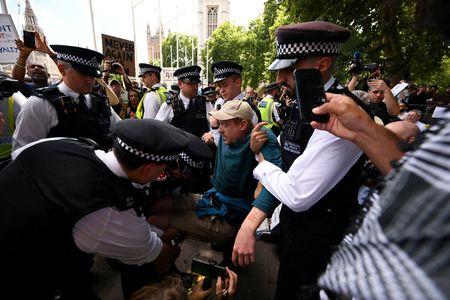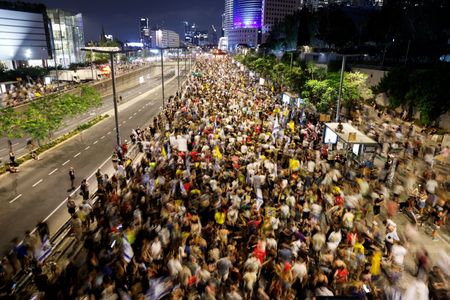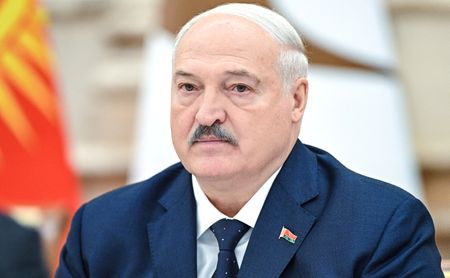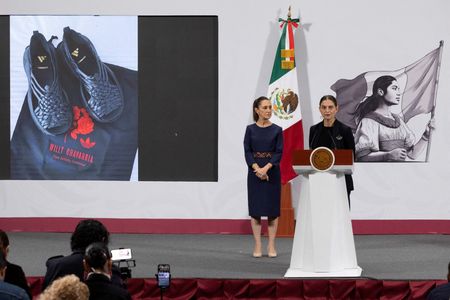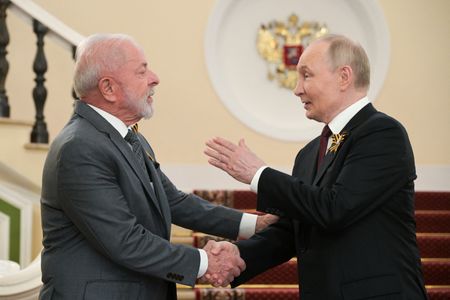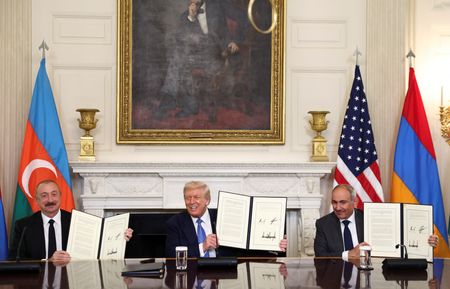By Catarina Demony
LONDON (Reuters) -New research shows that Britain’s King George IV, who ruled for a decade until 1830, personally profited from enslaved labour on Grenadian plantations, a finding that experts say heightens pressure on the monarchy to confront its historical links to slavery.
Independent scholar Desirée Baptiste uncovered a 1823-24 document at the National Archives in London revealing a 1,000-pound ($1,330.60) payment – equivalent to around 103,132 pounds today – from two Crown-owned estates in Grenada where hundreds of enslaved people laboured in the 18th and 19th centuries.
The funds were paid into King George IV’s private coffers, and contributed to his “lavish lifestyle”, said Baptiste, a researcher on colonialism and transatlantic slavery who has roots in Grenada and shared her findings with Reuters.
Baptiste’s research was verified by University of Manchester professor Edmond Smith and Dr. Nick Draper, founder of University College London’s Legacies of British Slave-ownership project.
Smith, who is supervising a PhD study on the royal family’s role in slavery, said as more evidence is uncovered the monarchy’s profits from slavery will become clearer. He said this payment “might well just be the tip of the iceberg”.
Buckingham Palace did not immediately respond to a request for comment.
King Charles has backed the study led by Smith, following a 2023 Guardian report revealing that in 1689 King William III received 1,000 pounds in shares in the Royal African Company, which trafficked thousands of enslaved Africans to the Americas.
“This evidence fits with long-term patterns of colonial exploitation by the British royal family, including repeated efforts to find novel income streams from colonies in the Caribbean,” Smith said.
King Charles expressed sorrow over slavery in a speech to Commonwealth leaders in 2022. But Baptiste said no British monarch has publicly acknowledged the Crown once owned and profited from enslaved people in the Caribbean.
Baptiste’s research, from her independent study ‘Slaves the Property of His Majesty: George IV and Grenada’, comes amid growing global momentum for reparations for slavery, especially across the Caribbean and Africa. However, some European leaders have been accused of being opposed to even opening the conversation.
($1 = 0.7515 pounds)
(Reporting by Catarina Demony; Editing by Nia Williams)

